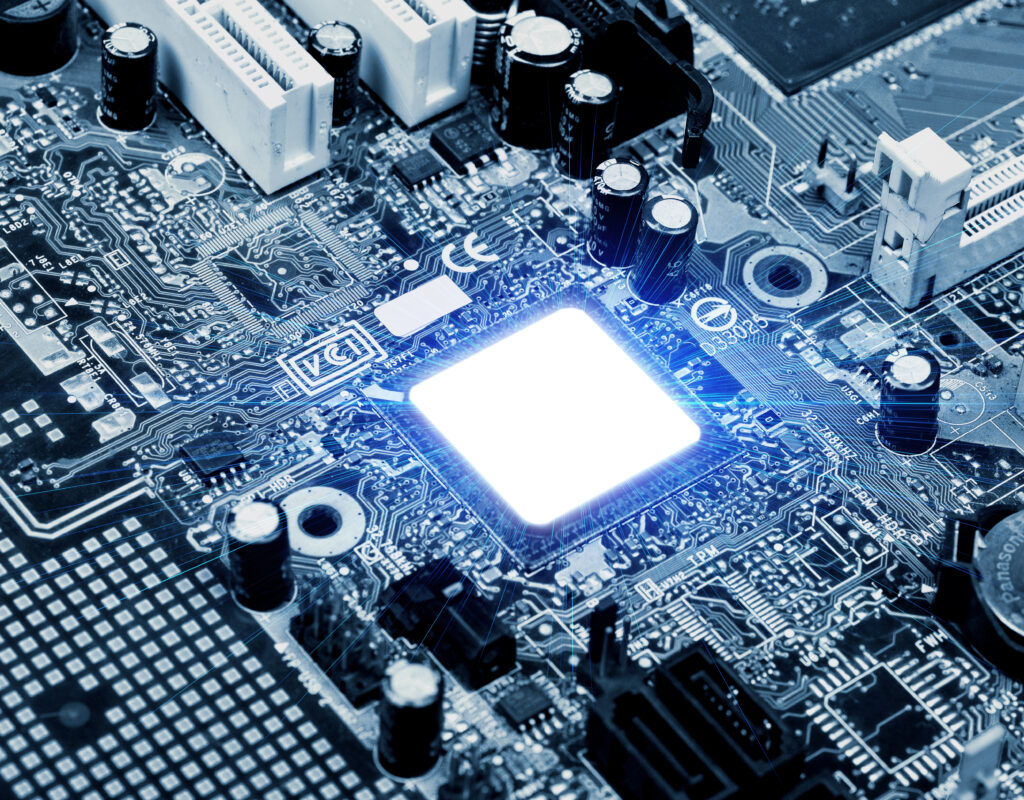Semiconductor materials crucial for sustainable future through innovation.
Driving Innovation Towards Sustainable Future with Semiconductor Materials The world becomes increasingly aware of the need for sustainable practices, the semiconductor industry is playing a crucial role in driving innovation towards a more sustainable future. Innovative semiconductor materials are essential for the development of sustainable technologies, including renewable energy, smart mobility, and the Internet of […]

Driving Innovation Towards Sustainable Future with Semiconductor Materials
The world becomes increasingly aware of the need for sustainable practices, the semiconductor industry is playing a crucial role in driving innovation towards a more sustainable future.
Innovative semiconductor materials are essential for the development of sustainable technologies, including renewable energy, smart mobility, and the Internet of Things (IoT). And the Semiconductor industry is expected to reach upto $1 trillion between 2026-2030 according to the industry prediction.

One such material is Silicon Carbide , which offers superior performance and energy efficiency compared to traditional silicon-based materials. Silicon Carbide is a key component of power electronics used in electric vehicles and renewable energy systems, and it plays a crucial role in enabling sustainable practices in these industries.
Similarly, Fully-Depleted Silicon on Insulator is another semiconductor material that is becoming increasingly important for sustainable technologies. FD-SOI offers lower power consumption, improved performance, and enhanced reliability, making it ideal for powering IoT devices and smart devices.

The semiconductor industry is also driving innovation in the development of sustainable manufacturing processes. One such process is the use of epitaxial growth, which enables the production of high-quality semiconductor materials with minimal waste and reduced environmental impact.
Furthermore, the adoption of sustainable practices in the semiconductor industry is not limited to the development of new materials and manufacturing processes. It also includes the responsible management of waste, recycling of materials, and reducing carbon emissions.
The industrial and automotive sectors have undergone significant changes in recent years, driven by technological advancements and shifting market demands.
While these changes bring opportunities for growth and innovation, they also come with challenges. One of the most significant challenges is the need for sustainability, as customers demand eco-friendly products and processes.
This has resulted in the adoption of new technologies such as SmartSiC and FD-SoI, which offer enhanced performance and sustainability benefits for EVs and smart devices.
However, the implementation of these technologies also presents challenges such as the high cost of implementation and the need for skilled professionals to manage them.
Additionally, the adoption of these technologies requires substantial investments in research and development. Despite these challenges, the industrial and automotive sectors remain vital components of the global economy, with numerous opportunities for growth and innovation.
The key to success lies in finding the right balance between technological advancements and sustainable practices.
Smart mobility is transforming the automotive industry with trends such as car electrification, car digitalization, and advanced driver-assistance systems (ADAS).
Similarly, power and energy sectors are undergoing significant changes through the electrification of everything, energy management, power efficiency, and energy infrastructure.
The Internet of Things (IoT) and connectivity are driving the development of connected, autonomous IoT objects, and digitalization of industrial applications.
The semiconductor industry plays a crucial role in driving these changes, and the automotive sector is a significant contributor to its growth.
In fact, the average number of chips per vehicle is now doubling, leading to a correlation shift in car production and semiconductor demand.
This growth opportunity is particularly significant in electrified drivetrain and ADAS, as these areas require sophisticated semiconductor technologies.
While these trends present vast opportunities for growth and innovation, they also come with challenges.
One of the most significant challenges is the high cost of implementation and the need for skilled professionals to manage these advanced technologies.
Additionally, the adoption of these technologies requires substantial investments in research and development.
Despite these challenges, the semiconductor industry remains vital to the growth and development of the automotive industry, and the continued adoption of advanced technologies will play a significant role in shaping the future of smart mobility.
semiconductor materials are crucial for the development of sustainable technologies, and the industry is driving innovation towards a more sustainable future.
Silicon Carbide and Fully-Depleted Silicon on Insulator are just two examples of the many innovative semiconductor materials that are enabling sustainable practices in industries such as renewable energy, smart mobility, and the IoT. As the world continues to prioritize sustainability, the semiconductor industry will play a vital role in driving innovation towards a greener future.

